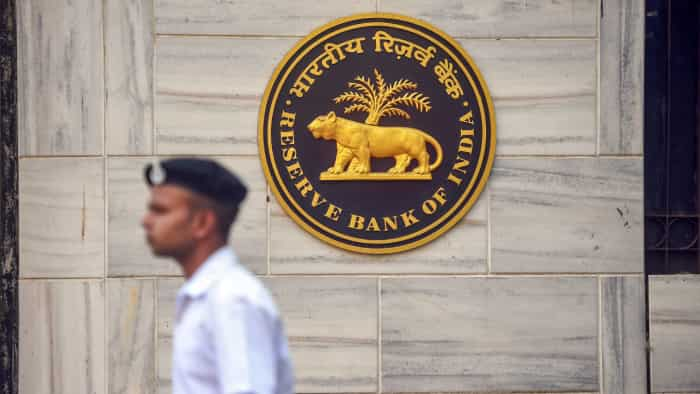Trai recommends over Rs 7.5 lakh cr spectrum auction plan, 35% cut in prime 5G band price
Setting the stage for the rollout of 5G services, telecom regulator Trai on Monday mooted a mega auction plan valued at over Rs 7.5 lakh crore at the base price across multiple bands for radiowaves allocated over 30 years.

Setting the stage for the rollout of 5G services, telecom regulator Trai on Monday mooted a mega auction plan valued at over Rs 7.5 lakh crore at the base price across multiple bands for radiowaves allocated over 30 years.
Overall, the Telecom Regulatory Authority of India (TRAI) recommended about a 39 per cent reduction in the reserve or floor price for the sale of spectrum for mobile services, including the latest 5G offering, as it looked to match revenue expectations with the industry's paying capacity.
The watchdog has recommended a mega auction plan of over Rs 7.5 lakh crore for over 1 lakh megahertz spectrum in case government allocates it for a period of 30 years. In case of 20 years, the total value of the proposed spectrum auction will stand at around Rs 5.07 lakh crore at the reserve price, according to the back-of-the-envelop calculation.
See Zee Business Live TV Streaming Below:
With large swathes of spectrum remaining unsold in the last two auctions, Trai recommended to the government for selling airwaves in all existing bands of 700 MHz, 800 MHz, 900 MHz, 1800 MHz, 2100 MHz, 2300 MHz, 2500 MHz and new slots of 600 MHz, 3300-3670 MHz and 24.25-28.5 GHz.
It has suggested a lower reserve price for all bands, compared to last recommended prices in 2018.
When contacted, Trai Chairman P D Vaghela told PTI that 5G recommendations have been framed after a "careful analysis" following stakeholder consultation, and wide discussions.
Recommendations are in interest of telecom sector and the country, Vaghela added.
On a 20-year scenario, the floor price in the 700 MHz band has been cut by 40 per cent to Rs 3,927 crore per MHz for a pan-India spectrum while the same in 800 MHz has been lowered by 22 per cent to about Rs 3,620 crore per MHz, pan-India.
For the prime 5G frequency of 3300-3670 MHz band, the all-India reserve price adds up to Rs 317 crore per MHz, which is more than 35 per cent lower than the Rs 492 crore/MHz suggested by Trai last time around.
Trai has also mooted a nearly 39 per cent lower base price across all bands referred to it, as compared to the last time.
The move to cut the reserve price follows more than 60 per cent of the spectrum put on the block at the auctions in 2016 and March 2021 remaining unsold.
The industry has since then been seeking realistic pricing in an essentially three-player market where most airwaves typically get sold at the base price. If the price is not in line with the industry's expectations, the spectrum could remain unsold.
Bharti Airtel Chairman Sunil Mittal had previously spoken of "appropriate" pricing of spectrum.
Recently, telecom industry body COAI had asserted that spectrum pricing should be kept conducive to market conditions as 5G entails upfront capital investments with monetisation spread over a long-haul, and pricing radiowaves high will only push the players up against the wall.
Trai's latest recommendations will set the groundwork for spectrum auctions in 2022, to facilitate the rollout of 5G mobile services within 2022-23, by private telecom providers.
The market is gearing up for the rollout of 5G services, that will usher in ultra high speeds and spawn new-age services and business models.
"The reserve price of spectrum allocation in case of 30 years should be equal to 1.5 times the reserve price of spectrum allocation for 20 years for the respective band," Trai said.
In the millimetre band, that is 24.25-28.5 GHz band, all India base price adds up to Rs 7 crore per MHz.
Trai further said that for the long-term growth and sustainability of the telecom sector, infusing liquidity and encouraging investment, the telecom service providers should be allowed easy payment options, including part payment with flexibility of moratorium.
"To provide flexibility to the telecom service providers, block size of 10 MHz for 3300-3670 MHz band and 50 MHz for 24.25-28.5 GHz band recommended. Spectrum to be assigned in a contiguous manner," Trai said in a statement.
The sector watchdog said that considering the facts that presently band plan for the frequency range 526-612 MHz is yet to be defined by international bodies, and the development of the ecosystem in the 526-612 MHz frequency range will take some time and the Ministry of Information and Broadcasting is using the 526-582 MHz band extensively across the country for TV transmitters, "the 526-612 MHz frequency range should not be put to auction in the forthcoming auction".
"DoT should come out with a plan for refarming the 526-582 MHz band to be utilised for IMT deployments. To make the 526-582 MHz band available for IMT, DoT should work with MIB to prepare a plan for an early migration from Analogue to Digital Transmission, so that the frequency band from the 526-582 MHz can be vacated for IMT services," Trai said.
Unlike existing coverage-based rollout obligations, considering deployment of 5G network in 3300-3670 MHz and 24.25-28.5 GHz bands, easy network deployment-based roll-out conditions have been recommended for these bands.
As per Trai, spectrum caps have also been rationalised. Overall cap across all bands has been done away with.
Trai has suggested a cap of 40 per cent on combined spectrum holding in sub-1 GHz bands. It has, however, recommended a cap of 40 per cent on combined spectrum holding in 1800 MHz, 2100 MHz, 2300 MHz and 2500 MHz bands, while an individual band-specific cap of 40 per cent for 3300-3670 MHz and 24.25-28.5 GHz spectrum bands has been suggested.
For ease of doing business, easy and transparent spectrum surrender norms with a fee of Rs 1 lakh per spectrum band per licensed service area has been suggested.
According to Trai, the spectrum for private network can be assigned administratively to the eligible Captive Wireless Private Network Permission holders/Licensees on demand for specified geography on non-interference basis through a widely publicized online portal-based process in a fair and transparent manner.
Prashant Singhal, Global TMT Emerging Markets Leader at EY termed TRAI's recommendations on auction of 5G spectrum as a welcome move.
"In particular, reducing 5G auction base price in the 3,300-3,670 MHz band by approximately 36 per cent was much warranted. However, even with the reduction in the base price, 5G spectrum price in India is still higher, which is 2.6X of Germany, 3.8X of the UK, and 4.4X of South Korea," Singhal said.
The price needs to be further pruned to offer affordable 5G services across the nation, Singhal argued.
"On the other hand, provision for surrender of spectrum is a good move. We need to carefully evaluate the mechanism and the commercial arrangement of such surrender," he said.
Get Latest Business News, Stock Market Updates and Videos; Check your tax outgo through Income Tax Calculator and save money through our Personal Finance coverage. Check Business Breaking News Live on Zee Business Twitter and Facebook. Subscribe on YouTube.
RECOMMENDED STORIES

Latest SBI Senior Citizens FD Rates: What will you get on maturity if you invest Rs 9,89,898, Rs 8,78,787, and Rs 6,56,565 in Amrit Vrishti, 1-, 3-, and 5-year FDs?

RBI Rule: New system for online money transfers to be implemented from April 1, 2025; here's all you need to know
06:41 AM IST









 BSNL installs 50,708 4G sites; 41,957 sites on-air: MoS Communications
BSNL installs 50,708 4G sites; 41,957 sites on-air: MoS Communications  Number of 5G subscribers in India may triple to 970 million by 2030: Report
Number of 5G subscribers in India may triple to 970 million by 2030: Report Telecom firms have undertaken Rs 4.26 lakh crore capex in 2 financial years: Union Minister Jyotiraditya Scindia
Telecom firms have undertaken Rs 4.26 lakh crore capex in 2 financial years: Union Minister Jyotiraditya Scindia India's Data Centres a $25 billion market opportunity over the next decade: Avendus
India's Data Centres a $25 billion market opportunity over the next decade: Avendus Vodafone Idea completes minimum rollout obligation for 5G networks
Vodafone Idea completes minimum rollout obligation for 5G networks